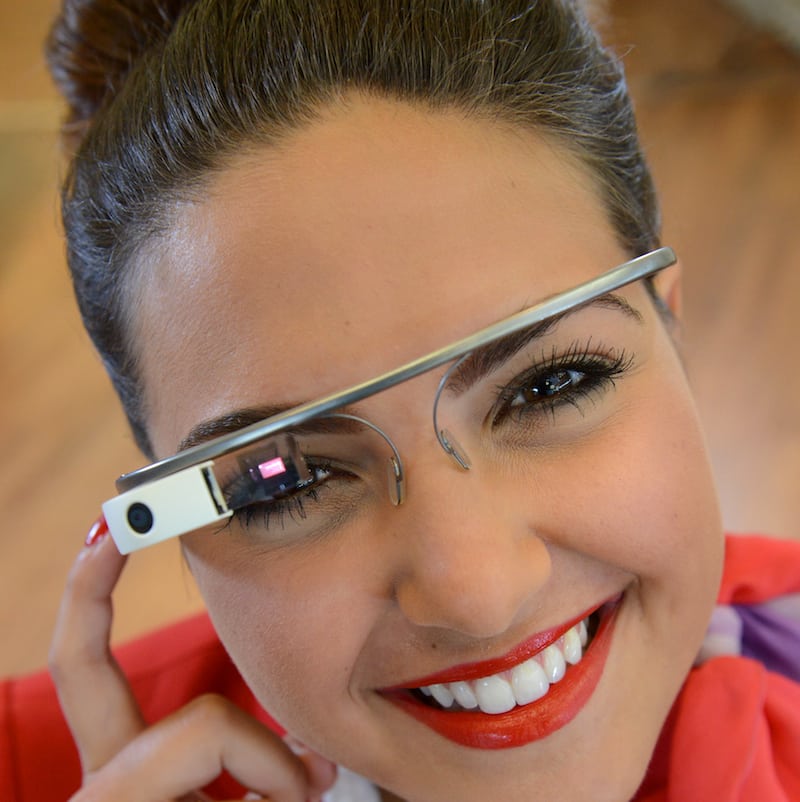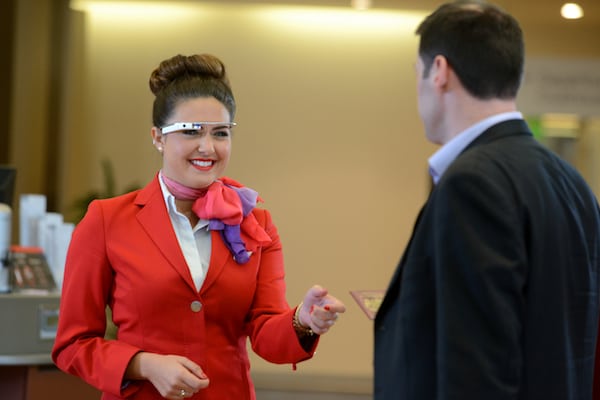Skift Take
Wearables, tablets or both? Which will end up providing more robust and personalized service for passengers? Either way, customer service for passengers, whether at the departure airport, onboard or at the destination, will undoubtedly undergo a revolution in the not-so-distant future.
As long as the pilots aren’t wearing them, passengers are probably safe for now.
Virgin Atlantic began testing outfitting concierge staff with Google Glass and Sony Smartwatch technology at Heathrow T3 to provide personalized service to Upper Class passengers.
In some ways, the new service has parallels to KLM Surprise, launched in 2010, although the Virgin Atlantic service is geared toward the elite instead of sometimes-bored coach passengers hanging around at airport gates before departure.
The Virgin Atlantic service for Upper Class passengers uses a dispatch app developed by SITA to manage the assignment of tasks and the availability of concierge staff. As the Virgin Altantic passenger show up at the Upper Class Wing at T3, personal information about the passenger is pushed to the Google Glass or Sony Smartwatch worn by the concierge.
The concierge assists the passengers throughout the check-in process, and keeps the passenger abreast of flight updates, weather events, and relevant events at the passengers’ destinations. Certain translation services are available, too, through the wearable technology.
Virgin Atlantic is conducting a 6-week pilot of the service, and will then evaluate it before considering a wider rollout, the airline says.
Dave Bulman, Virgin Atlantic’s director of IT, argues that wearable technology can bring back some of the glory to the passenger experience, which is acutely in need of innovation.
The question arises whether the wearable-tech service represents a gimmick or a long-term opportunity.
KLM has been offering a different form of personalized service since 2010, delivering small, but personalized gifts — perhaps a map of the best football/soccer pubs at the destination — to passengers based on their social media profiles as ascertained through Foursquare check-ins from airport locations and tweets.
With KLM, there is no wearable technology involved, but it is personalized service for passengers nonetheless.
The Daily Newsletter
Our daily coverage of the global travel industry. Written by editors and analysts from across Skift’s brands.
Have a confidential tip for Skift? Get in touch
Tags: google glass, social media, virgin atlantic

